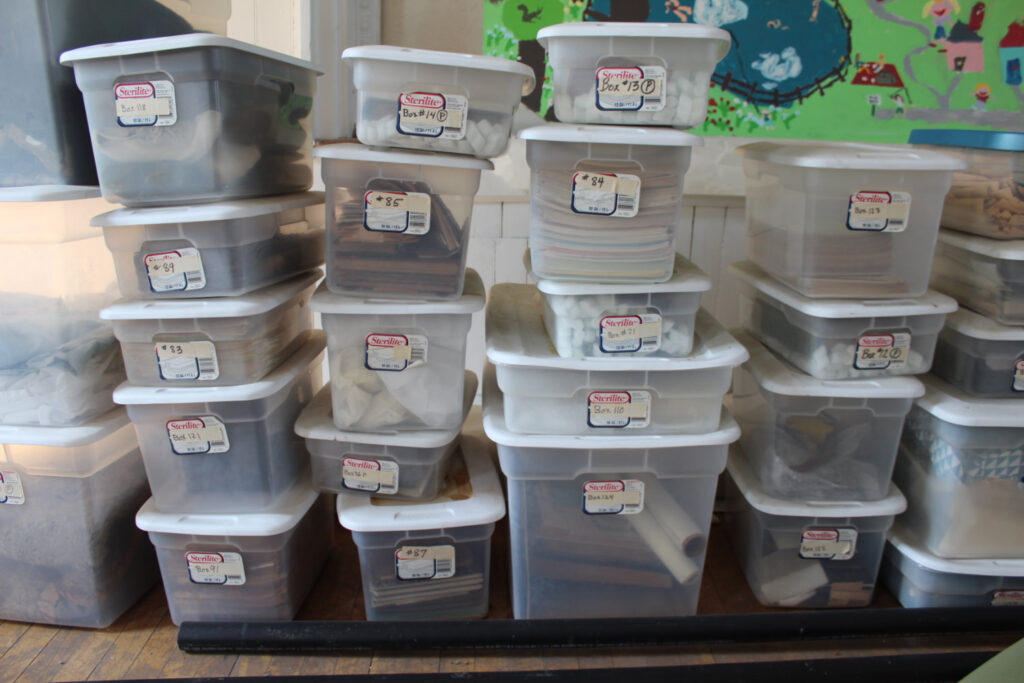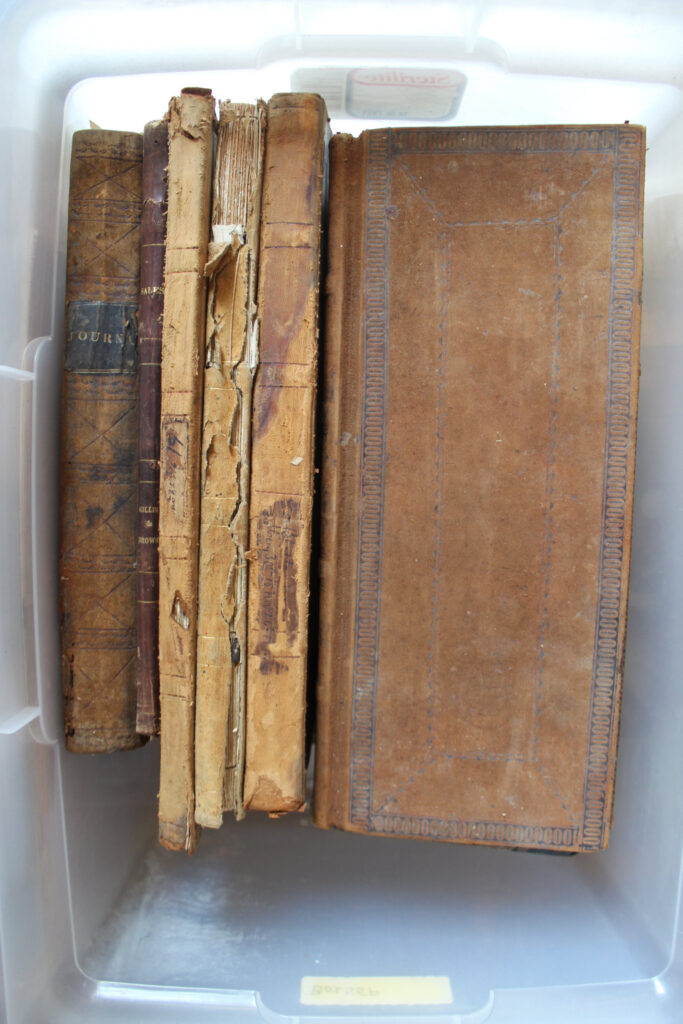Planning for the future of the PHS collection
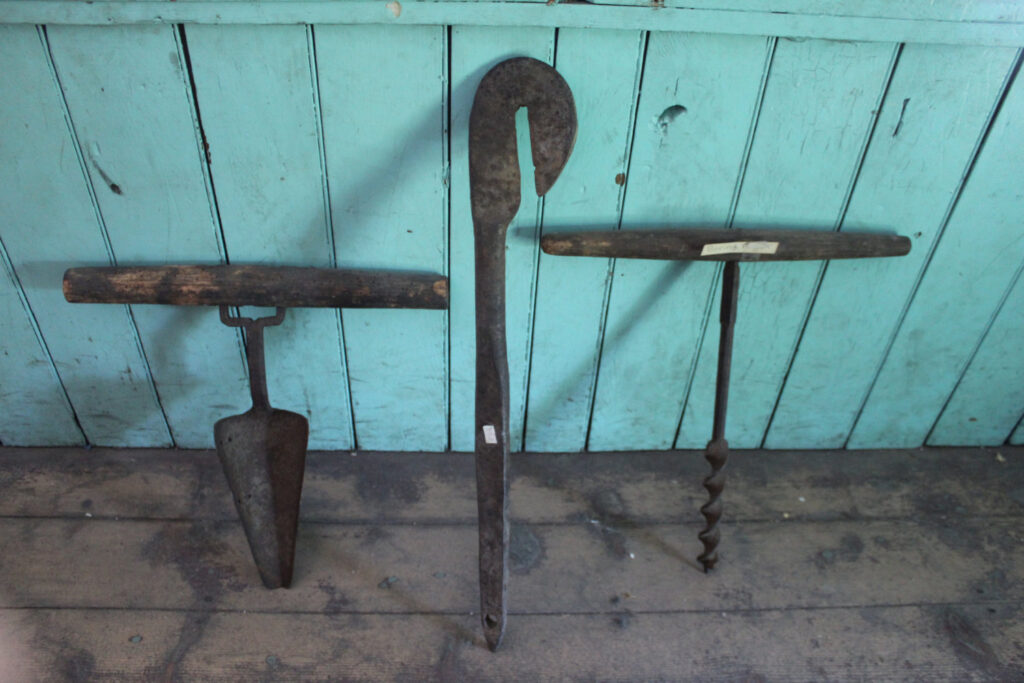
by Carolyn Handy
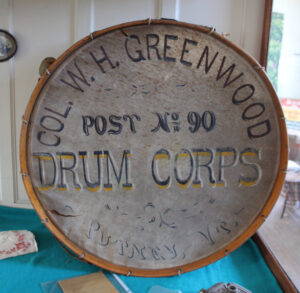 What’s in the PHS collection? Papers? Paintings? Textiles? Tools? The answer is: all of those and more. Two of many goals of the society are that the public will be able to see displays of the collection in person, as well as online. In 2022, the PHS board made great progress in that direction.
What’s in the PHS collection? Papers? Paintings? Textiles? Tools? The answer is: all of those and more. Two of many goals of the society are that the public will be able to see displays of the collection in person, as well as online. In 2022, the PHS board made great progress in that direction.
On April 20, the Town of Putney and the PHS signed a lease for 25 years, giving the PHS the right to use the “second floor of the town municipal building as a historical museum and for other public purposes.”
In June this year, PHS president Tom Jamison, and board member Carolyn Handy attended an online cataloging session, hosted by the Vermont Historical Records Program. A few other board members were able to watch the recorded session later. (The PHS board is made up of 11 members who serve 3-year terms.) Handy also attended two hands-on cataloging sessions at Vermont History Center in Barre later in June.
On August 12, Roving Archivist Sally Blanchard-O’Brien, a certified archivist with the Vermont Historical Records Program, based in Middlesex, came to Putney to see the collection and offer expert advice.
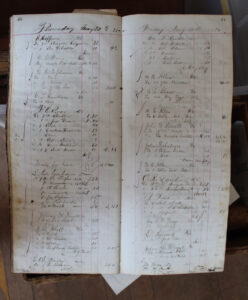 When Blanchard-O’Brien visited the Putney Town Hall, she met with Jamison, Handy and board member Lyssa Papazian in the leased space. One of the first projects for the PHS will be to inventory the entire collection, she suggested. Although there are inventory records from years ago, the inventory has not been updated for many years.
When Blanchard-O’Brien visited the Putney Town Hall, she met with Jamison, Handy and board member Lyssa Papazian in the leased space. One of the first projects for the PHS will be to inventory the entire collection, she suggested. Although there are inventory records from years ago, the inventory has not been updated for many years.
The society is also planning on updating or changing its collection management system. Blanchard-O’Brien provided names of many historical societies in Vermont which are using several different systems. The board will reach out to them to obtain feedback and information on how it’s working for them before making a decision.
In addition, cataloging the items will facilitate the ability to place the collection online so it is searchable. Fortunately, it is not necessary to catalog the entire collection before placing it online. Although the collection won’t be open to the public this year, Handy hopes that part of the collection can be cataloged and placed online before next summer.
Another recommendation from the roving archivist is to update the society’s collection policy. “The policy is important to have in place since it establishes the baseline of your collection, directing what you will (and won’t) take into your collection,” she stated.
The archivist also suggested monitoring the space for temperature and humidity, using a device that will transmit the daily data to a software program for later analysis. “Environmental monitoring is highly recommended to get an understanding of where your storage space is at,” she said. “That way you can see how far from the recommended levels the space is, and see the fluctuations throughout the year.” She added the historical society to her list to borrow a datalogger.
PHS is hoping to borrow a monitoring device to provide baseline data on the climate conditions in the second floor space. With that information we can determine what work is needed to control temperature and humidity. In the meantime, we will work on inventorying the collection and figuring out how to get it online.
